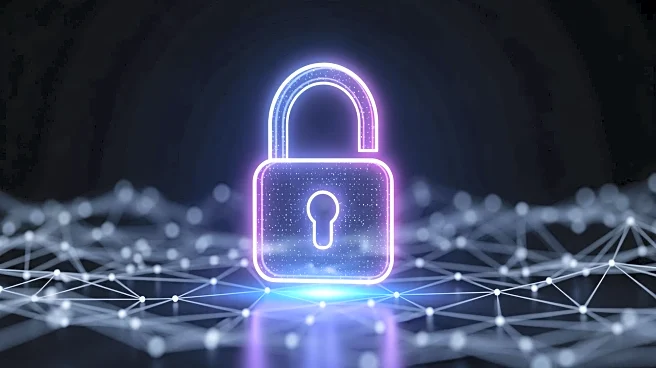What is the story about?
What's Happening?
Families of hostages are marking Rosh Hashanah for the second time without their loved ones, who have been held since the October 7 massacre. The parents of Ran Gvili, Bar Kupershtein, and Matan Angrest shared their experiences and hopes for the new year. Talik and Itzik Gvili, parents of Ran, recall a home once filled with life and large family gatherings, now overshadowed by his absence. Despite fears for the future, they believe military action is key to bringing hostages home, as they do not think Hamas will negotiate. Tal Kupershtein, Bar's father, has relearned to speak after a car accident, driven by the desire to voice his son's plea. Anat and Chagai Angrest, Matan's parents, remember vibrant holidays filled with family, now lost in grief. They criticize stalled negotiations and emphasize the need for an agreement to end the crisis.
Why It's Important?
The ongoing hostage situation highlights the severe impact on families and the broader geopolitical tensions involving Hamas. The families' experiences underscore the human cost of the conflict and the urgent need for resolution. The belief in military action as a solution reflects the desperation and lack of faith in diplomatic negotiations. This situation affects U.S. foreign policy interests, as it involves key allies and adversaries in the region. The emotional and psychological toll on families is profound, influencing public opinion and potentially shaping policy decisions. The stalled negotiations and calls for military intervention could lead to increased regional instability, affecting global security and economic interests.
What's Next?
The families continue to protest and demand action from political leaders, including Prime Minister Netanyahu, ahead of the High Holidays. The potential for military intervention remains a critical point of discussion, with families hoping it will lead to the release of hostages. The situation may prompt further diplomatic efforts or international pressure to resolve the crisis. The families' public appeals could influence political leaders to prioritize negotiations or consider alternative strategies. The ongoing conflict and hostage situation may lead to increased advocacy and support from civil society groups, pushing for humanitarian solutions.
Beyond the Headlines
The hostage crisis raises ethical questions about the use of military force versus diplomatic negotiations. The families' experiences highlight the cultural significance of holidays and the impact of conflict on personal and communal traditions. The situation may lead to long-term shifts in public perception of government actions and policies regarding hostage negotiations. The emotional narratives shared by the families could foster greater empathy and understanding, potentially influencing broader societal attitudes towards conflict resolution.

















